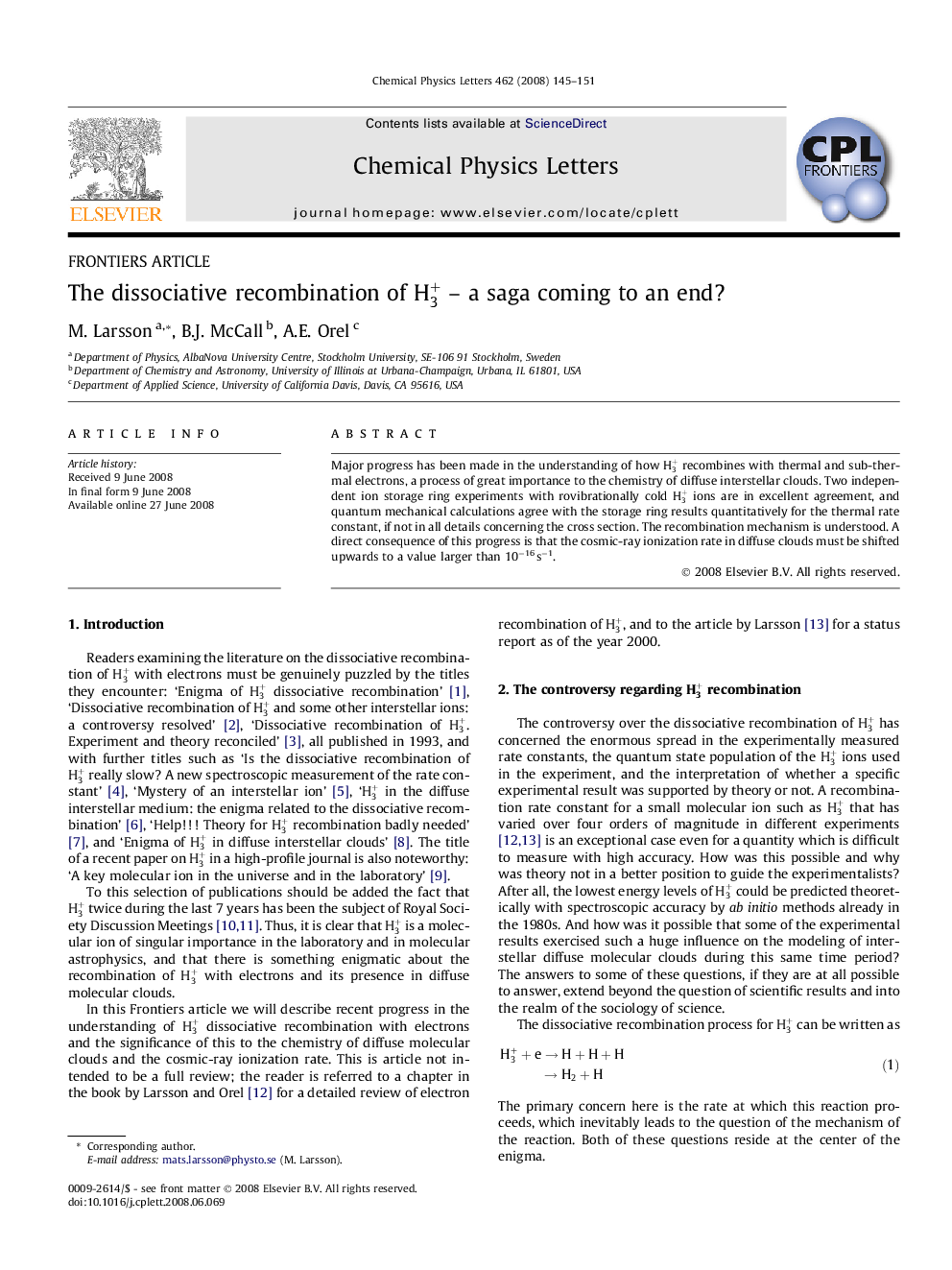| Article ID | Journal | Published Year | Pages | File Type |
|---|---|---|---|---|
| 5387083 | Chemical Physics Letters | 2008 | 7 Pages |
Abstract
Recombination of H3+ with thermal and subthermal electrons have caused major controversies over the years. The rate constant measured in different experiments has varied four orders of magnitude, and the recombination mechanism has been unknown. Significant progress has been made in recent years, and experiment and theory now agree well. A consequence of this is that it is now difficult to understand the high abundance of H3+ in diffuse interstellar clouds; it should be destroyed effectively by low-energy electrons. The remedy is to assume that the prouction rate is higher than earlier believed, that is, the cosmic-ray ionization rate in diffuse clouds must be shifted upwards to a value larger than 10â16 sâ1.
Related Topics
Physical Sciences and Engineering
Chemistry
Physical and Theoretical Chemistry
Authors
M. Larsson, B.J. McCall, A.E. Orel,
